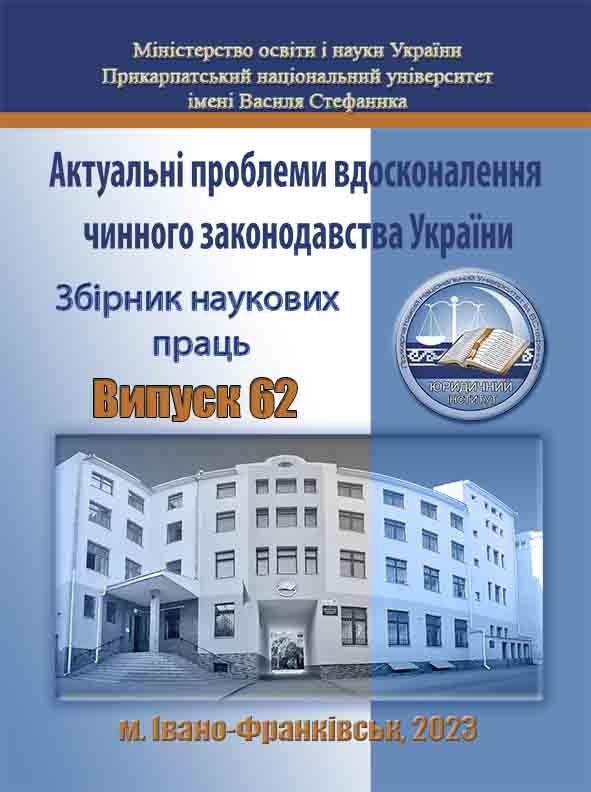Simplified proceedings: a historical and legal aspect
DOI:
https://doi.org/10.15330/apiclu.62.4.17-4.24Keywords:
simplified proceedings, civil process, differentiation of civil proceedings, concept of civil proceedings, minor cases, cases of minor complexityAbstract
The article is devoted to the study of historical and legal aspects of simplified proceedings in the civil procedure of Ukraine. It is noted that one of the important directions of development of modern procedural legislation, both civil and administrative, economic, is increasing the accessibility of justice, optimization, acceleration and simplification of judicial proceedings. This trend is clearly visible in the domestic judiciary.
The author analyzes in detail the separate stages of the establishment, formation and improvement of the simplified proceedings’ legal regulation in the civil process of Ukraine.
It is emphasized that in 2004, a new Code of Civil Procedure of Ukraine was adopted, in which the institution of injunctive proceedings, which was not provided for by civil procedural norms until now, was established. Simplified proceedings in its modern sense were not included in the text of the Code.
Special attention was paid to the concept of improving the judiciary for the establishment of a fair court in Ukraine, which established the key for the further approval of simplified proceedings in the national legal system, the provision that in order to ensure the right of a person to quickly renew his rights, especially in uncomplicated cases, it is expedient to simplify the court procedure where such simplification will not violate the interests of the parties in the fair resolution of the case.
The author concludes that the introduction of simplified proceedings (in the narrow sense) on the basis of the 2016-2017 reform was a natural step in the development of the national judiciary in the direction of harmonization with EU standards, the basis of which was laid by the Concept of Judicial Reform in Ukraine (1992).


